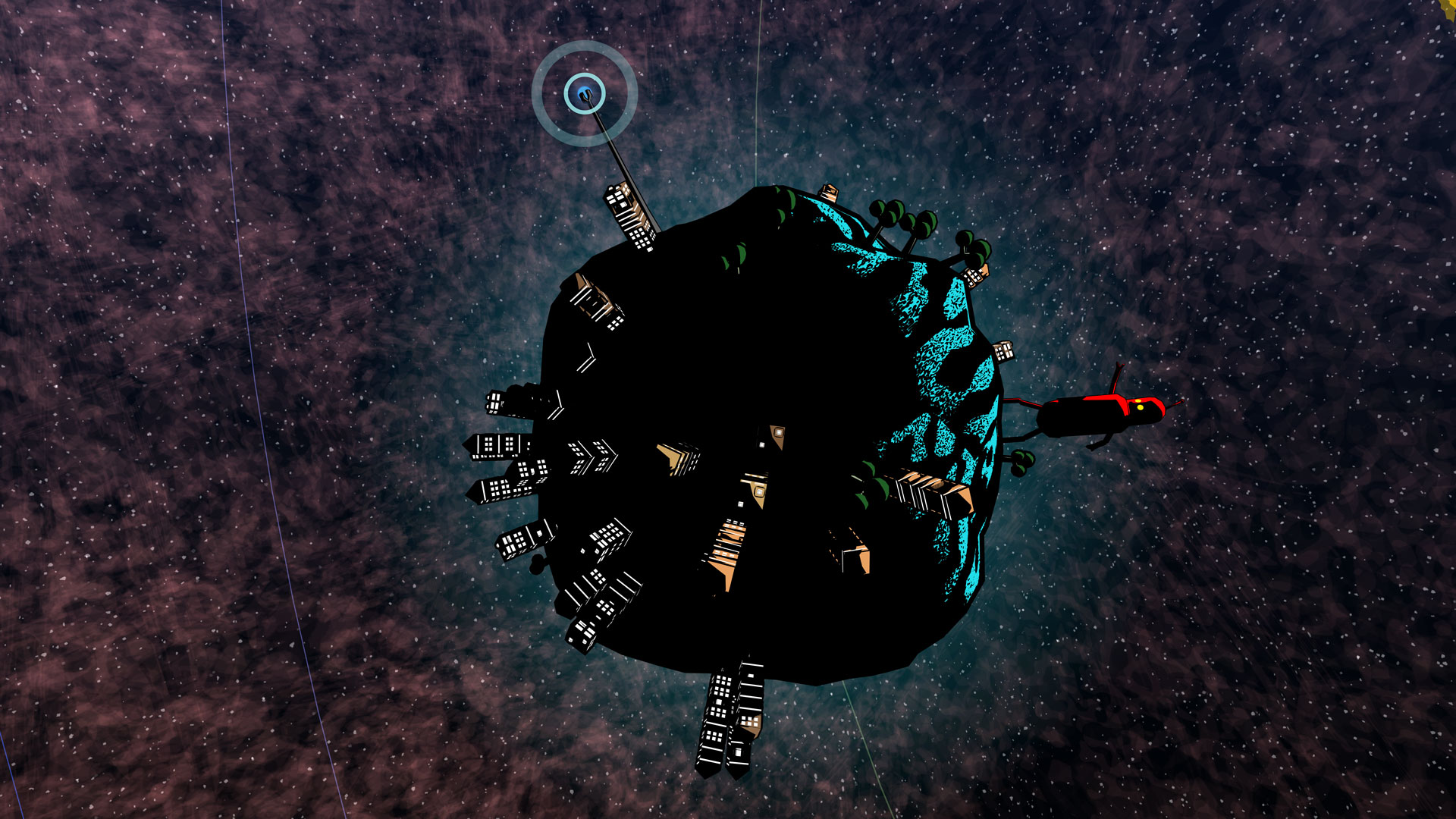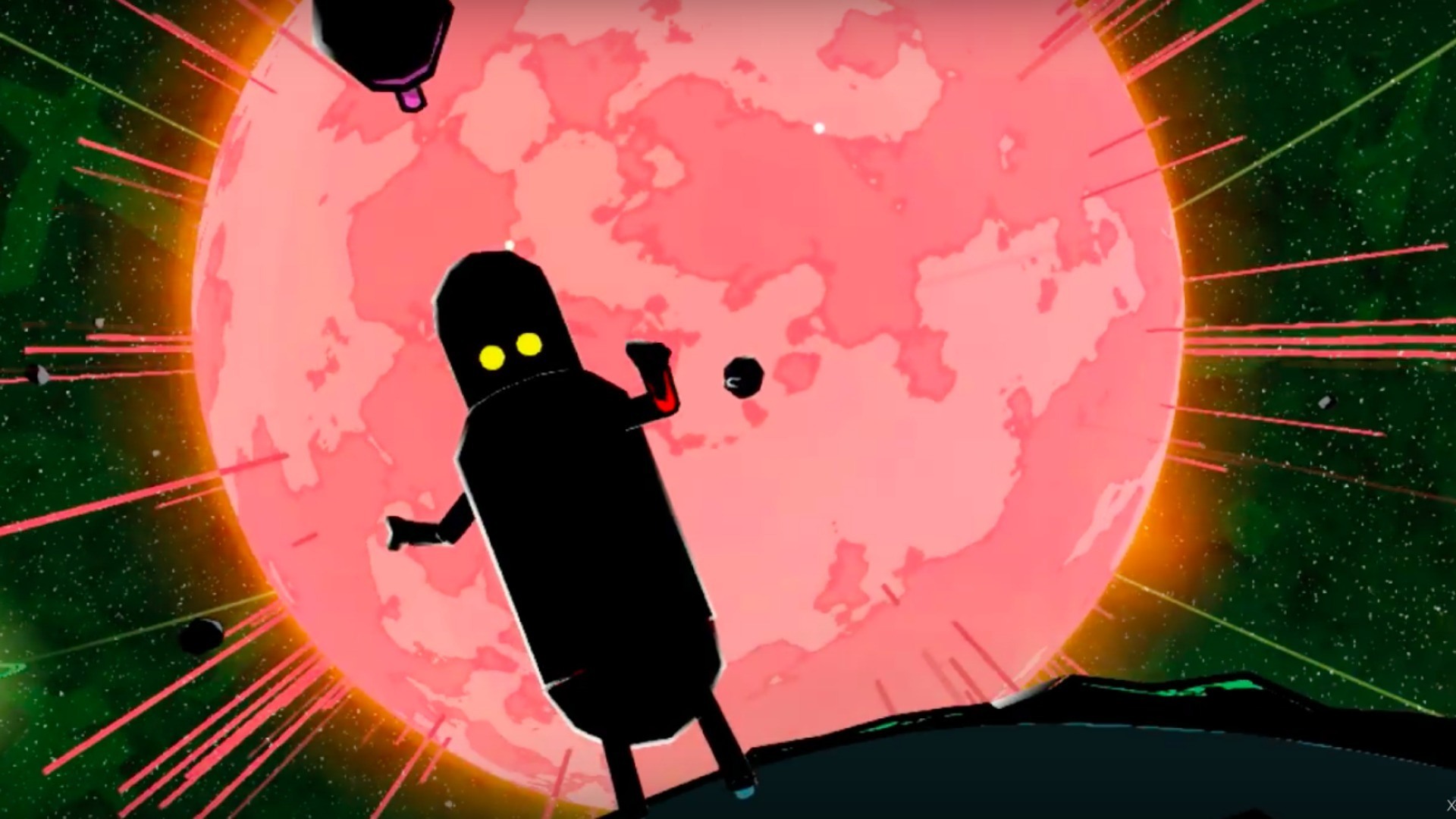Jettomero: Hero of the Universe Review
After the first ten minutes or so of Jettomero: Hero of the Universe I thought I had stumbled on a hidden gem of a game, but after it was finished two hours later I was just left perplexed as to what was the point. It feels like an experience where the the style of it is the reason for it existing at the total expense of the substance of the game elements.
You are Jettomero, an incredibly clumsy robot of gigantic proportions who stumbles around planets trying not to squish the tiny inhabitants while you search for fuel and spare parts. You begin having just recovered consciousness and have have no recollection of who you are, or what your place in the universe is, so you travel the cosmos landing on procedurally generated planets collecting your items for an unknown purpose.

The art and animation has been designed to immediately grab your attention, it is a stunning game to look at, and it knows it with the addition of a photo mode complete with a variety of filters to capture the gorgeousness of it all. Additionally, it is accompanied by a wonderful soundtrack that perfectly matches the scale and scope of your travels through the cosmos, but underneath all the prettiness there is very little by way of a actual game.
You travel to each solar system by way of a worm-hole. In each system there are only a handful of planets, and each one takes only minutes to traverse. On one planet in each system you will stumble across a gigantic “monster” roughly the same size as you and you will battle it out Godzilla style through a sequence of quick time events. You are completely indestructible, so if you fail you will be jettisoned back into space to land on the planet and try again. If you succeed, however, the monster is destroyed and a fragmented part of your memory is returned to you in the form of a cipher that you must decode. The ciphers are the most interesting game elements, offering a puzzle where you turn dials to change letters in a passage of text to unscramble it. Once you do that you are rewarded with a comic book style scene animating the text you have discovered. And that is it, you do this nine times travelling via a worm-hole to another system, fight the monster and decode the text until you have all your memories completed and your purpose in the universe explained to you, whereupon you must make a choice and the game ends.

You can continue to explore and collect your missing body parts should you wish to do so with each world presumably generating infinitely for as long as you want it to. After visiting a few planets post game there is a kind of epilogue that becomes apparent, however, even this is the same core gameplay loop of landing on a planet, apologising profusely while you destroy everything and fighting a large enemy via a quick time event. The conclusion of the brief epilogue leads to another abrupt ending and a further indication that there is roughly only twenty minutes of game play strung out over two hours.
Having been left so underwhelmed by the experience of Jettomero: Hero of the Universe I wondered whether I just didn’t “get it”, whether it was designed to just be a meditative experience in a beautifully designed seventies-inspired comic book aesthetic, but even that idea doesn’t sit with me either; it simply feels like a game that contains a number of unfinished ideas wrapped up in a gorgeous package. It’s certainly short enough to give it a go should you be suitably curious about the premise of a huge naïve robot crashing through civilisations claiming to only want to help save humanity while simultaneously those civilisations are throwing their entire military arsenal at you, or if you want to take pretty pictures via the photo mode, but otherwise there isn’t much on offer.





